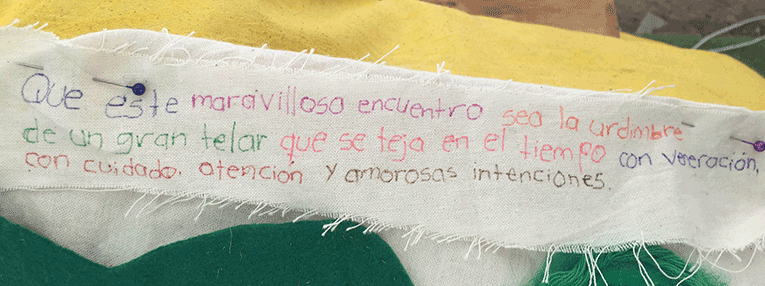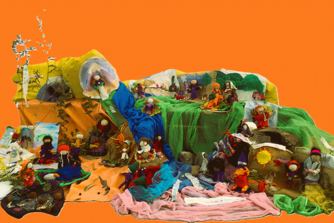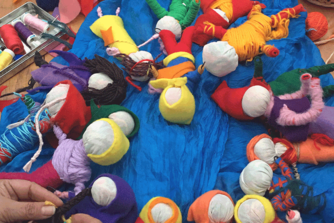A lively research network among colleagues
The reality of Waldorf schools in Latin America is as diverse as the continent itself. A group of teachers from Argentina asked themselves at the ‘XV. Ibero-American Congress’, a group of teachers from Argentina posed the question of what challenges they must face in order to continue learning and teaching after more than 70 years of pedagogical work. A contribution by Paula Edelstein.
As a teaching collective, we recognise that the pedagogical task that takes place in a school has theoretical foundations, contextual qualities and future projections. Based on anthroposophy, we strive to develop a vision. This allows us to situate ourselves in the cultural diversity of our American continent and its present. We want to do this as an experience of education and active research.
After three years of intensive interdisciplinary professional development activities on issues of human dignity, identity and belonging, we organised the 5th Pedagogical Conference and 3rd International Colloquium «Interculturality and Curriculum» in October 2023 to open our pedagogical practice to these reflections.
During this meeting, we discussed educators, teachers and future teachers who work in different realities and who are representative of the complexity and richness of South America.
Collaborative research in action
As a first step, we decided to carry out exploratory research, the central question of which is: To what extent are the territorial affiliation and the qualities of the population we work with taken into account by teachers as well as Waldorf schools when developing the pedagogical offer?
Given the importance of the inner journey of the teacher, the processes of self-education and the «freedom of thought» promoted by anthroposophy, we affirm that each teacher has the possibility of assuming the role of an active researcher of their environment.
In the same way, the teaching round encourages individual perspectives and makes it possible to follow this inner path in the company of colleagues who participate and collaborate in deepening it in a reciprocal way. The research methodology is based on this individual and collective work. We define it as collaborative research in action, developed in different languages in addition to the spoken word.

The workshop ‘What do we want to be? Broadening the view and creating space for interculturality’ at the ’XV. Ibero-American Congress’ in Santiago de Chile in July 2024 was another important step in this process.
Work as a lively, pluralistic encounter
At five meetings there, we embarked on a collective journey with 26 colleagues from six Latin American countries. We combined dialogue and textile work (see photos) and asked ourselves about the place of our own roots and their significance for educational work. We opened our eyes to our surroundings and also brought with us the stories that accompany us in our biographies. It was a wonderful experience that confirmed the importance of building a lively research network among colleagues.
Our aim is to document experiences and exchange approaches and suggestions. It is also important for us to develop a methodology that enables us to turn our daily work into a lively, pluralistic encounter that is nourished by all the voices, stories and insights of the people who populate our continent.
Paula Edelstein, Colectivo Colibrí

